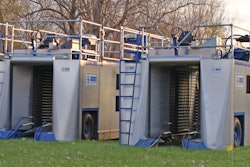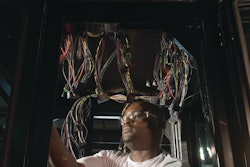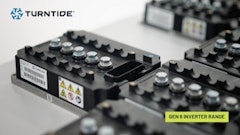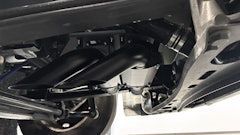Ricardo Inc., an independent engineering firm specializing in fuel economy and efficiency, recently announced technology that optimizes ethanol-fueled engines to a level of performance that exceeds gasoline engine efficiency and approaches levels previously reached only by diesel engines.
Called Ethanol Boosted Direct Injection (EBDI), the technology takes full advantage of ethanol's best properties — higher octane and higher heat of vaporization — to create a renewable fuel scenario that is independent of the cost of oil.
"Developing renewable energy applications that can lead to energy independence is a top priority at Ricardo," says Dean Harlow, president, Van Buren Twp., MI. "We've moved past theoretical discussion and are busy applying renewable energy technology to the real world. The EBDI engine project is a great example because it turns the gasoline-ethanol equation upside down. It runs on ethanol, gasoline, or a blend of both."
EBDI solves many of the challenges faced by flex-fuel engines because it is optimized for both alternative fuels and gasoline. Current flex-fuel engines pay a fuel economy penalty of about 30% compared to gasoline when operated on ethanol blends such as E85. he EBDI engine substantially improves ethanol's efficiency, and performs at a level comparable to a diesel engine.
"These efficiencies mean that EBDI can reduce the actual cost of transportation when compared to fossil fuels, and it does it with a renewable resource — ethanol," says Rod Beazley, director of Ricardo's Gasoline Product Group. "The combination of technologies we're applying to the EBDI engine make the most of ethanol's advantages over other fuels."
The prototype EBDI is a 3.2-liter V-6 engine that ultimately could serve as a replacement for a large gasoline or turbo-diesel engine. The first firing of the engine and initial development is currently taking place and will be installed into a demonstration vehicle later this year.
The technology is very scalable, says Beazley. Applications could reach far beyond the automotive and light-truck industry. "Imagine agricultural equipment that, in effect, burns what it harvests — corn, sugar cane or some other renewable substance. It could mean tremendous cost savings across many industries."
The project represents a technical collaboration with Behr, Bosch, Delphi, Federal-Mogul, GW Castings and Honeywell, to further the advancement and commercialization of the EBDI project.



















